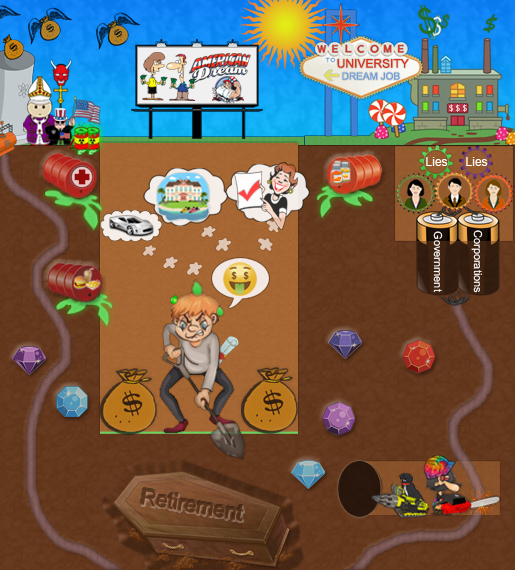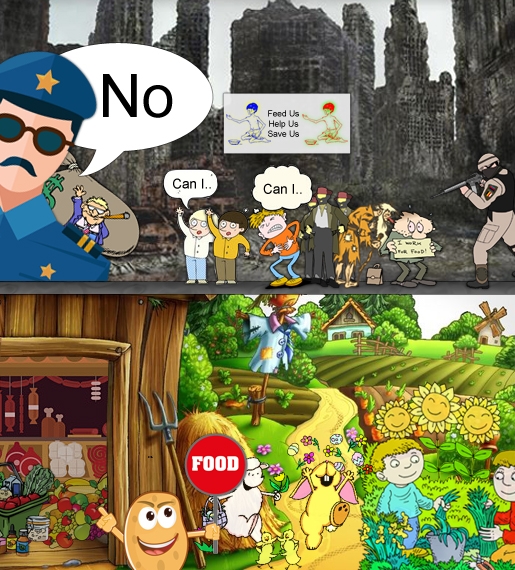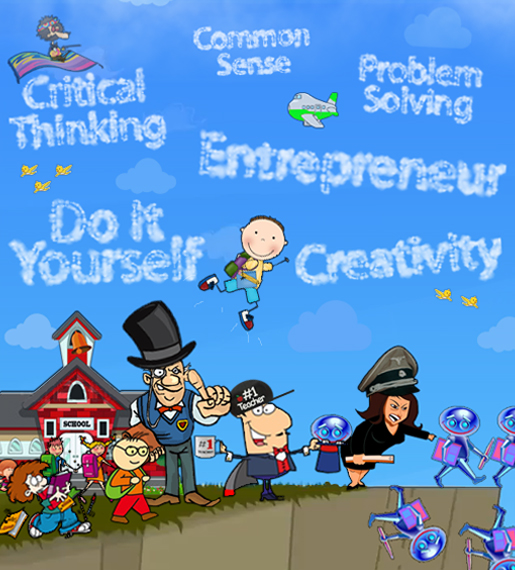The transition from high school to college is an exciting and daunting experience. It is a time of exploration, self-discovery, and profound personal growth. However, beneath the freedom and the buzz of exciting opportunities, there lies a less talked about cycle, the cycle of conformity and repetition. This is a pattern which not only impacts the college experience but also shapes students’ personalities, often diluting individuality and fostering a lack of creativity for life.
The Struggle for Identity in College Life
The journey through college life often involves a quest to find one’s true identity, a task made challenging by the variety of roles and expectations that college presents. Whether you see yourself as an athlete, a top scholar, a social butterfly, or a mix of several personas, the unrelenting pressure to meet certain stereotypes can feel stifling. New students, especially, bear the brunt of this pressure as they attempt to navigate a path that balances the desires of their peers, their families, and their own personal dreams.
This tug-of-war often plunges students into the cycle of conformity and repetition, as they strive to fit into predefined categories. The struggle to maintain a distinct identity amidst societal demands can sometimes overshadow the joy of self-discovery and personal growth. Thus, the college experience becomes less about discovering who you are, and more about conforming to what others expect you to be.
The Phenomenon of Conformity
Conformity, although universal, tends to take on a more pronounced role during our college years. It’s a time when our innate human desire to fit into societal norms escalates. This urge to assimilate is often manifested in several facets of college life. Your choice of major might not stem from a genuine interest in the field, but from the majority’s preference. The clubs you join or even your personal fashion choices could be influenced by the popular trends on campus. This relentless pursuit to conform can result in the suppression of your true passions, talents, and individualism.
The fear of isolation or the backlash of going against the grain can make students unwilling to challenge the status quo. This can ultimately hinder their ability to discover and express their unique identities. Moreover, the constant need to conform to societal norms can lead to the internalization of these expectations, restricting one’s personal and intellectual growth.
The Monotony of Routine and Expectation
Routine and repetition can often become the most distinguishing characteristics of college life. Classes, assignments, exams, the cycle repeats with little variance, often draining the sense of enthusiasm and curiosity that initially characterized the college experience. This rote routine, driven largely by the pressure to earn a degree and obtain a well-paying job, can eclipse the pursuit of unique interests and passions.
The inherent excitement in exploring new ideas, engaging in insightful discourse, and following personal passions often fades into the background as these routine expectations take precedence. The predetermined structure of the educational system, with its focus on standardized exams and traditional methods of teaching, often lacks flexibility, stifling creative expression and intellectual curiosity. In the drive to fit into the mold and meet expectations, the opportunity to pursue individual interests and create a personalized, fulfilling educational experience often slips away, leading to a college life marked more by monotonous obligation than enthusiastic exploration.

> Check Current Book Prices <Psychological Impact of Conformity and Repetition
The ripple effects of the cycle of conformity and repetition in a student’s college life aren’t just limited to academic and social aspects, but they extend to the psychological sphere as well. Living in a world where authenticity is overshadowed by societal expectations often breeds a feeling of discontentment among students. There may be an undercurrent of disconnection from their true selves, a sense that they are donning a mask rather than living genuinely. This emotional strain can culminate in an array of mental health issues such as anxiety, depression, and low self-esteem.
Striving to constantly fit into predetermined molds and meet societal expectations creates a high-stress environment, and this, coupled with the fear of being judged or ostracized, can lead to a significant amount of mental and emotional distress. It’s noteworthy that these psychological concerns often remain unaddressed or dismissed, exacerbating the situation further and keeping the cycle of conformity and repetition spinning. The psychological toll of this cycle is a crucial facet that needs more attention and awareness in the context of college life.
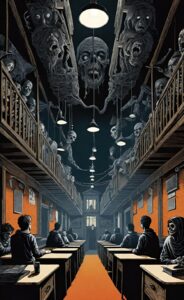

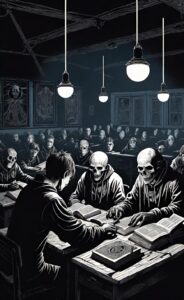
Breaking Away from Conformity and Repetition
Stepping out of the cycle of conformity and repetition is an arduous but essential journey for college students. It involves questioning established norms and making decisions rooted in individual beliefs rather than societal pressures. Diversifying experiences in college, such as engaging in a wide range of extracurricular activities and exploring a variety of academic fields, can be instrumental in breaking free from the monotonous routine.
Forming friendships with a diverse group of individuals can also provide different perspectives and challenge the status quo. Additionally, practicing self-reflection and introspection can aid students in identifying personal aspirations, interests, and passions that may not align with popular trends or expectations. This not only fosters personal growth but also aids in carving out a unique identity amidst the homogenizing forces of college life.
Fostering Individuality and Independence
Promoting a culture of individuality and autonomy is critical for the holistic growth of college students. This begins with recognizing and appreciating our distinct characteristics and passions, and refraining from treating them as shortcomings. Creating a conducive atmosphere where diversity in thinking and viewpoint is appreciated can help empower students to break away from the cycle of conformity and repetition.
Rather than forcing students to fit into predefined categories, colleges should foster an environment that encourages exploration, curiosity, and independent thought. By doing so, students can be guided to develop a strong sense of self, equipped with the confidence to forge their own path. Ultimately, nurturing individuality and independence in college can serve as a launching pad for students to become self-reliant, innovative thinkers, capable of making meaningful contributions to society. Instead it’s just a building to brainwash students into a certain ideology and world view.

